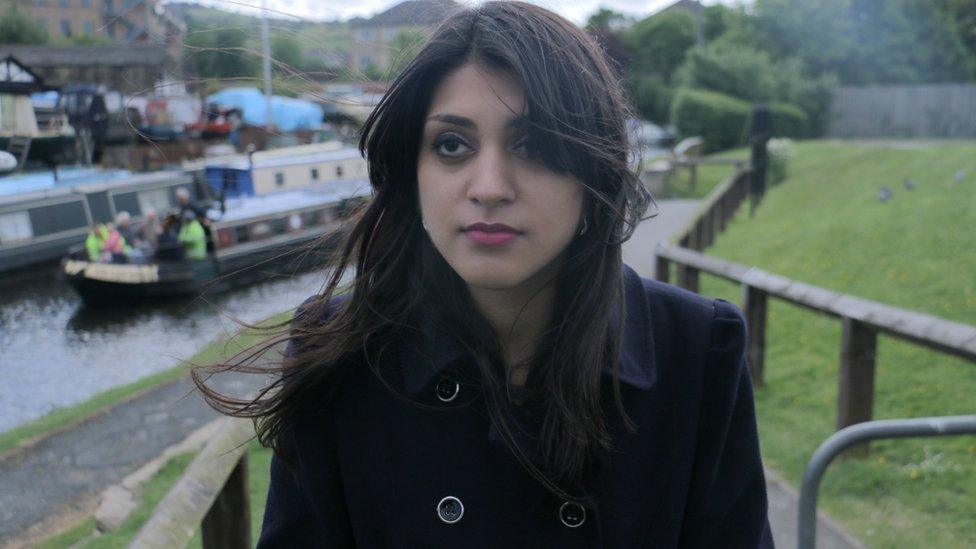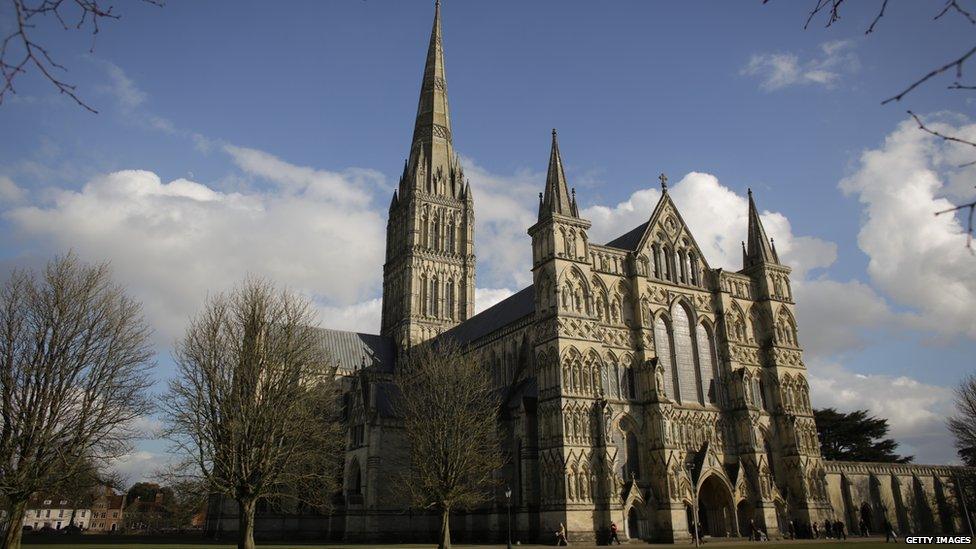Ex-Muslim: My parents don't want me 'to burn in hell'
- Published
What it's like coming out as an ex-Muslim
In the UK religious freedom is a human right, but leaving your family's religion can still mean isolation and loneliness.
Sara has been speaking to Newsbeat about what it was like when she told her parents two years ago that she no longer wanted to be a Muslim.
"You feel like you're betraying everyone. Because no one leaves Islam," she says.
She says they kicked her out at 17 and she's not lived with them since.
In some countries, such as Qatar and Saudi Arabia, leaving Islam - or "apostasy" carries the death penalty.
"Most people I talk to feel like they're the only ex-Muslim in the world," says Sara.
As she got older she realised "that Islam didn't quite fit" with her thinking but she kept it a secret - lying about praying and studying Arabic.
"They would try and catch me out. Once I came downstairs, my parents asked me if I had prayed and I said 'yes, yes, of course, obviously'."
"They were like, 'You do know you're still wearing your shoes'."
Muslims remove their shoes before prayer to wash their feet.
"That was pretty awkward," she says.
It became hard to hide.
"I just didn't think I could do it. So I very seriously considered suicide. It's difficult because you sort of give up," she says.

When she told her parents they burst into tears.
"You want to hug them, but you're the source of your pain," she says.
"They thought the main reason I wanted to leave was alcohol and pork and things like that but obviously that was not even a factor in my decision.
"It's like arguing with a drunk person. You can't do anything right. Everything you believe is wrong."
"They don't want you to burn in hell eternally, so I can see their point, but it's not going to change my mind."
Soon after starting university, Sara joined a group which tries to help ex-Muslims by giving talks and offering advice.
"Just knowing you're not alone is enough to help some. Normally they've not told their family and they're like 'oh my god you exist'."
Imtiaz Shams, who runs the group Faith to Faithless, knows of around 200 ex-Muslims in London and another 100 around the UK.
He says another 20 non-believers from different religions, including ex-Christians, ex-Mormons and ex-Hindus, have got in touch with them.
Mohammed Shafiq is from The Ramadhan Foundation, an organisation which represents Muslims in Britain.
He says: "In the end, if you make that choice to leave Islam you're making a conscious choice to move away from your family as well and move away from the wider community.
"This applies equally to all the other faiths."

25% of the population described themselves as having "no religion" in the 2011 census.
"I've met many Christians, I've met Hindus, Sikhs over the years, who've come into Islam, who've become Muslim, who've been disowned by their families.
"Some people have become ex-Muslims and created an industry about wanting to challenge and demonise Islam over the past few years and that's what we've got to confront."
Sara is now starting to see more of her family.
She speaks to her mum and sister, but doesn't think she'll ever be able to have a relationship with her dad.
When she saw her younger brother for the first time in a year and a half, she didn't recognise him.
"The problem is most ex-Muslims don't want to be ex-Muslims. The easiest thing for us, and for our families, would be to just believe," she says.
"Of course I feel guilt. I wish I hadn't had to do this. But there is a point where you have to think, is this my life or your life?"
Follow @BBCNewsbeat, external on Twitter, BBCNewsbeat, external on Instagram, Radio1Newsbeat, external on YouTube and you can now follow BBC_Newsbeat on Snapchat